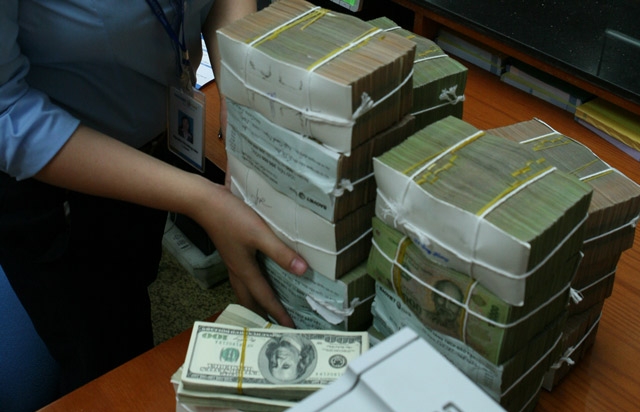The government is doing its best to keep the budget deficit at less than 5 per cent of total GDP; a level approved by the National Assembly.

Public expenses may be cut on certain unnecessary items, such as the purchase of new public vehicles, according to a directive signed by Prime Minister Nguyen Xuan Phuc.
He requested the Ministry of Finance (MoF) balance public expenses this year based on forecasts for the crude oil price - the largest contributor to Vietnam’s GDP, at nearly 30 per cent annually.
The PM’s directive comes as the country’s budget revenue in 2016 may be in shortfall due to the falling crude oil price and foreign loan repayments reaching their due date, while international trade commitments with lower tariffs will also hit State coffers.
Vietnam will repay some VND273 trillion ($12 billion) in foreign loans this year, according to MoF.
PM Phuc recently approved an MoF plan whereby Vietnam will borrow some VND452 trillion ($20 billion) this year to balance the budget.
Vietnam purchases some 1,500 new public vehicles each year for State agencies, excluding vehicles for the military, public security agencies, and State-owned enterprises (SOEs), according to MoF. Total public vehicles now stand at around 37,960.
In order to raise State budget revenue, the government has asked all ministries and cities and provinces to push up SOE equitization.
“SOEs and State-owned groups must make State budget contributions and their after-tax profit is not allowed to be converted into registered capital,” PM Phuc noted in the directive.
This part of the directive was made after the Bank for Investment and Development of Vietnam (BIDV) and VietinBank - two primarily State-owned banks - recorded after-tax profits in 2015 of VND7.036 trillion ($336 million) and VND7.36 trillion ($350 million), respectively.
MoF, via the State Bank of Vietnam (SBV), wanted to collect dividends to the SBV in cash, but BIDV plans to pay dividends in shares while VietinBank wants to hold on to dividends for re-investment.
Both banks have paid cash dividends of some 10 per cent per annum in previous years.
If the two banks pay dividends by cash to MoF, the State budget would receive some VND4,600 billion ($220 million), a significant sum in tough budgetary times, according to the Ho Chi Minh City Securities Corporation (HSC).
The State stake in BIDV now stands at 95.28 per cent and 64.46 per cent in VietinBank.
In early June Deputy Minister of Finance Do Hoang Anh Tuan sent a written letter to the SBV asking it to insist that BIDV and VietinBank pay dividends in cash.
HSBC analysts, in their June report on Vietnam’s economy, warned that the country’s fiscal wiggle room is limited.
“The government fiscal policy space is particularly constrained,” Ms. Izumi Devalier, an economist at HSBC in Hong Kong, wrote in the report. “In 2016 we forecast the budget deficit to widen again to 6.6 per cent of GDP.”
In an attempt to boost budget revenue for development expenses, the government also asked MoF to consider a favorable timeframe and conditions to issue government bonds in international and local markets this year, totaling VND17 trillion ($809 million).
Vietnam’s total budget revenue during the first five months of 2016 was reported at VND396 trillion ($18 billion), accounting for 39.1 per cent the annual plan.
Expenditure, meanwhile, was VND466 trillion ($22 billion), for a deficit of $3 billion, according to MoF.
The country plans 2016 budget revenue of VND1,014 trillion ($48 billion) and expenditure of VND1,273 trillion ($60 billion), for a deficit of 4.95 per cent of GDP.
“Regaining fiscal wiggle room requires efforts to broaden the revenue base and reduce current expenditure, but these reforms will take time,” Ms. Devalier wrote.
VN Economic Times